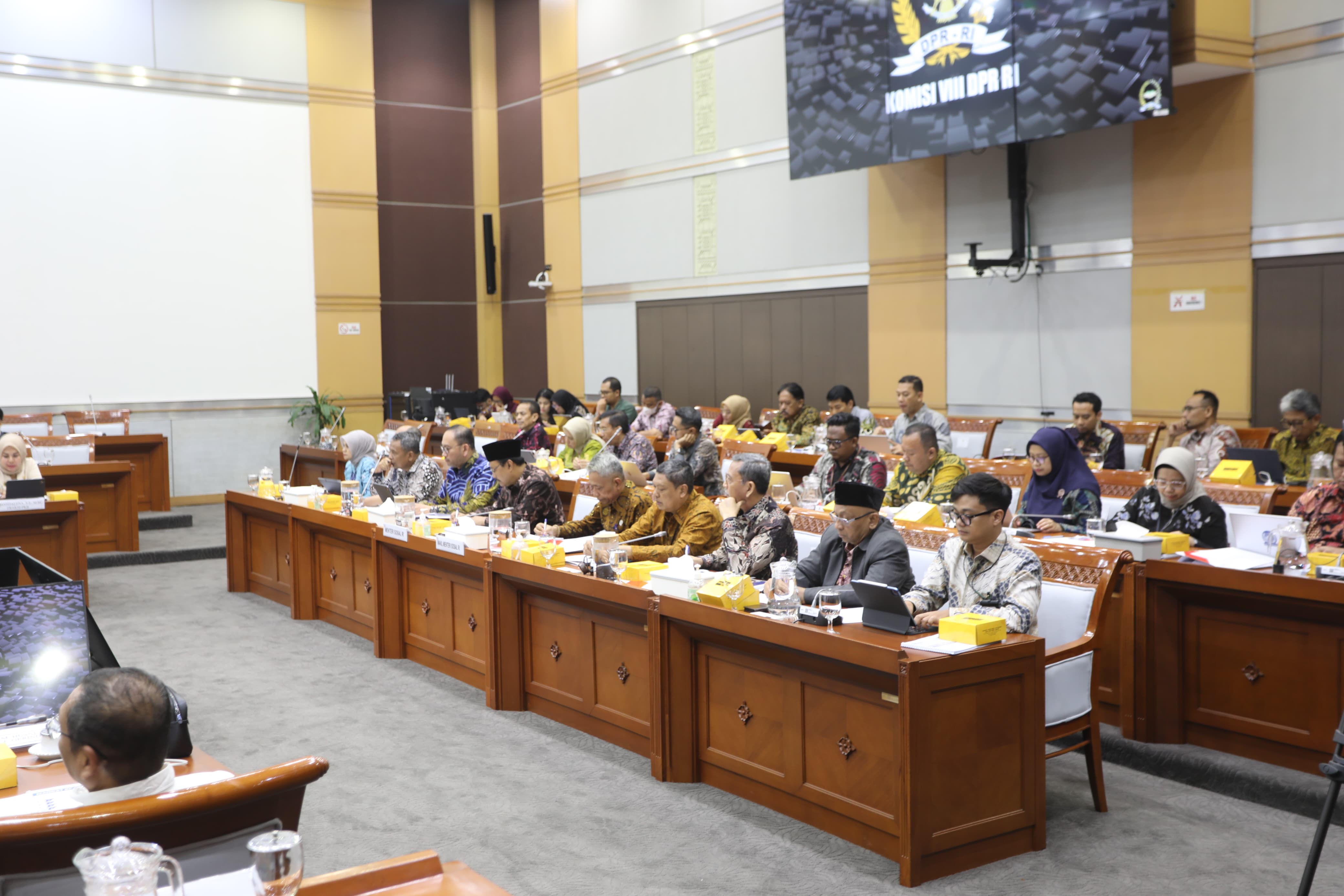JAKARTA (November 12, 2024) – Ministry of Social Affairs (MoSA) and Commission VIII of the Indonesian House of Representatives (DPR RI) held their first working meeting to examine MoSA's work plan and budget for 2025.
Minister of Social Affairs Saifullah Yusuf (also known as Gus Ipul) kicked off the discussion by outlining the life cycle social protection policy that his ministry will implement.
"Life cycle social protection is a holistic approach that ensures the well-being of every individual from birth to death," said Gus Ipul during the meeting at the Parliamentary Complex, Jakarta, on Tuesday (11/12/2024).
He explained that social protection encompasses various aspects, including social protection and security, social empowerment, and social rehabilitation. These measures aim to address vulnerabilities, poverty, and social risks throughout life.
"The framework for MoSA social protection targets individuals listed in the Integrated Social Welfare Data (DTKS)," Gus Ipul stated.
He further detailed the stages of the life cycle-social protection based on DTKS. Newborns to individuals aged 60 and above will receive social protection and security. Meanwhile, children aged 7–18 years and adults aged 19–59 years will benefit from social rehabilitation.
"Adults aged 19–59 years and seniors aged 60 and above will also receive social empowerment," Gus Ipul added.
Pregnant women, babies, and toddlers are among those who benefit from health-related social assistance programs. Pregnant women will receive IDR 750,000 every three months, or IDR 3 million annually, in addition to prenatal check-ups and health screenings. Infants up to 11 months old will receive vitamins and health screenings.
"Toddlers will receive IDR 750,000 every three months or IDR 3 million annually, along with monitoring of growth, measurements, vitamins, and health checks," he said.
Social assistance will also be allocated to persons with disabilities and the elderly, amounting to IDR 2.4 million annually for each group. Recipients must be registered in the DTKS, which covers those classified as extremely poor, poor, and vulnerable.
"MoSA’s targets include 0.83% of the population (2.3 million people) classified as extremely poor, 9.03% (25.22 million people) categorized as poor, and 48.9% (136.6 million people) identified as vulnerable," he explained.
During the meeting, Gus Ipul was accompanied by Vice Minister of Social Affairs Agus Jabo Priyono, the Secretary-General, the Directors-General, the Inspector General, and other officials from the Ministry of Social Affairs.
 Bahasa
Bahasa
 English
English


